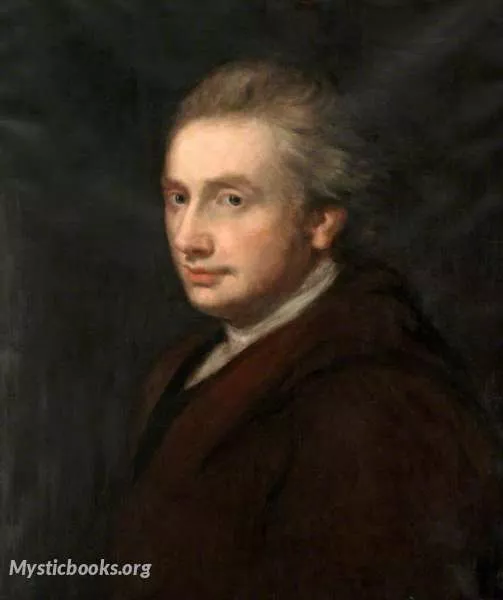
Timeline
Title
Country/Nationality
John Owen
John Owen was an English Nonconformist church leader, theologian, and academic administrator at the University of Oxford.
He was briefly a member of parliament for the University's constituency, sitting in the First Protectorate Parliament of 1654 to 1655.
Of Welsh descent, Owen was born at Stadhampton in Oxfordshire, and was educated at Queen's College, Oxford (B.A. 1632, M.A. 1635); at the time the college was noted, according to Thomas Fuller, for its metaphysicians. A Puritan by upbringing, in 1637 Owen was driven from Oxford by Laud's new statutes, and became chaplain and tutor in the family of Sir Robert Dormer and then in that of Lord Lovelace. At the outbreak of the English Civil War he sided with the parliament, and thus lost both his place and the prospects of succeeding to his Welsh Royalist uncle's fortune. For a while he lived in Charterhouse Yard, troubled by religious questions. His doubts were removed by a sermon preached by a stranger in the church of St Mary Aldermanbury where he had gone intending to hear Edmund Calamy the Elder. Owen's first publication, The Display of Arminianism (synergism) (1642), was a spirited defence of Calvinism (monergism). It was dedicated to the committee of religion, and gained him the living of Fordham in Essex, from which a "scandalous minister" had been ejected. At Fordham he remained engrossed in the work of his parish and writing only The Duty of Pastors and People Distinguished until 1646, when, the old incumbent dying, the presentation lapsed to the patron, who gave it to someone else.
In 1644, Owen married Mary Rooke (d. 1675). The couple had 11 children, ten of whom died in infancy. One daughter survived to adulthood, married, and shortly thereafter died of consumption. Eighteen months later, he married Dorothy D'Oyley, the wealthy widow of Thomas D'Oyley, a member of the landlords' family at Stadhampton.
On 29 April he preached before the Long Parliament. In this sermon, and in his Country Essay for the Practice of Church Government, which he appended to it, his tendency to break away from Presbyterianism to the Independent or Congregational system is seen. Like John Milton, he saw little to choose between "new presbyter" and "old priest."
He became pastor at Coggeshall in Essex, with a large influx of Flemish tradesmen. His adoption of Congregational principles did not affect his theological position, and in 1647 he again argued against Arminianism in The Death of Death in the Death of Christ, which drew him into long debate with Richard Baxter. He made the friendship of Fairfax while the latter was besieging Colchester, and addressed the army there against religious persecution. He was chosen to preach to parliament on the day after the execution of King Charles I, and succeeded in fulfilling his task without directly mentioning that event.
Another sermon preached on 29 April, a plea for sincerity of religion in high places, won not only the thanks of parliament but the friendship of Oliver Cromwell, who took Owen to Ireland as his chaplain, that he might regulate the affairs of Trinity College, Dublin. He pleaded with the House of Commons for the religious needs of Ireland as some years earlier he had pleaded for those of Wales. In 1650 he accompanied Cromwell on his Scottish campaign. In March 1651, Cromwell, as Chancellor of Oxford University, gave him the deanery of Christ Church Cathedral, Oxford, and made him Vice-Chancellor of Oxford University in September 1652; in both offices he succeeded the Presbyterian, Edward Reynolds.
Besides his academic and literary concerns, Owen was continually involved in affairs of state. In 1651, on 24 October (after Worcester), he preached the thanksgiving sermon before parliament. In 1652 he sat on a council to consider the condition of Protestantism in Ireland. In October 1653 he was one of several ministers whom Cromwell summoned to a consultation as to church union. In December, the degree of Doctor of Divinity was conferred upon him by Oxford University. In the First Protectorate Parliament of 1654 he sat, for a short time, as the sole member of parliament for Oxford University, and, with Baxter, was placed on the committee for settling the "fundamentals" necessary for the toleration promised in the Instrument of Government. In the same year he was chairman of a committee on Scottish Church affairs. He was, too, one of the Triers, and appears to have behaved with kindness and moderation in that capacity. As vice-chancellor he acted with readiness and spirit when a Royalist rising in Wiltshire broke out in 1655; his adherence to Cromwell, however, was by no means slavish, for he drew up, at the request of Desborough and Pride, a petition against his receiving the kingship. Thus, when Richard Cromwell succeeded his father as chancellor, Owen lost his vice-chancellorship. In 1658 he took a leading part in the conference of Independents which drew up the Savoy Declaration (the doctrinal standard of Congregationalism which was based upon the Westminster Confession of Faith).
On Oliver Cromwell's death in 1658, Owen joined the Wallingford House party, and though he denied any share in the deposition of Richard Cromwell, he preferred the idea of a simple republic to that of a protectorate. He assisted in the restoration of the Rump Parliament, and, when George Monck began his march into England, Owen, in the name of the Independent churches, to which Monck was supposed to belong, and who were anxious about his intentions, wrote to dissuade him. In March 1660, the Presbyterian party being uppermost, Owen was deprived of his deanery, which was given back to Reynolds. He retired to Stadham, where he wrote various controversial and theological works, in particular his laborious Theologoumena Pantodapa, a history of the rise and progress of theology. The respect in which many of the authorities held his intellectual eminence won him an immunity denied to other Nonconformists. In 1661 the celebrated Fiat Lux, a work by the Franciscan friar John Vincent Cane, was published; in it, the oneness and beauty of Roman Catholicism are contrasted with the confusion and multiplicity of Protestant sects. At Clarendon's request Owen answered this in 1662 in his Animadversions; and so great was the success of that work that he was offered preferment if he would conform. Owen's condition was liberty to all who disagreed in doctrine with the Church of England; nothing therefore came of the negotiation.
His most important work was his Treatise on Evangelical Churches, in which were contained his latest views regarding church government. He died at Ealing, just twenty-one years after he had gone out with so many others on St Bartholomew's day in 1662, and was buried on 4 September 1683 in Bunhill Fields.
Books by John Owen
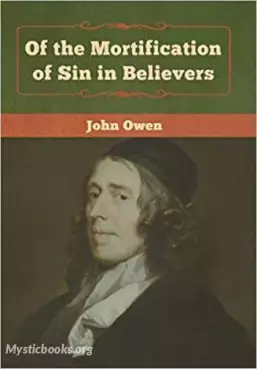
The Mortification of Sin in Believers
John Owen, in this Puritan classic, writes succinctly of the matters of the heart in dealing with sin in the life of the Christian. In a way that cuts right to the heart of the matter while leaving no room for excuses, Owen encourages the Christian t...
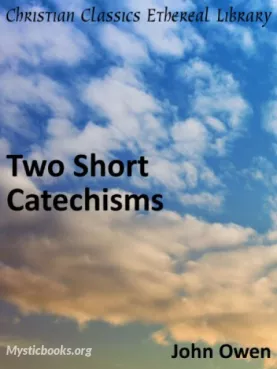
Two Short Catechisms
This invites readers into the world of theological brilliance and spiritual enlightenment crafted by one of history's most influential theologians. In this compact yet profound work, Owen provides two catechisms that delve into the depths of Christia...
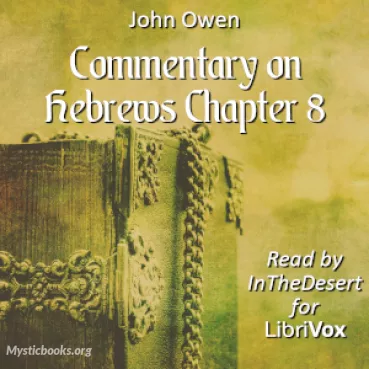
Commentary on Hebrews Chapter 8
Delve into the profound wisdom of John Owen as he unravels the mysteries of Hebrews Chapter 8, guiding readers on a transformative journey through biblical truths. In "Commentary on Hebrews Chapter 8," the revered theologian John Owen unveils the ric...
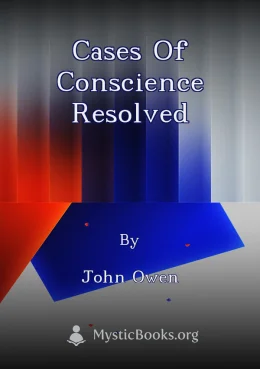
Cases of Conscience Resolved
This book is a collection of questions and answers delivered at church meetings on various subjects, particularly relating to personal holiness, grace, and sin. It is a work of Puritan casuistry, which is a branch of Christian ethics that deals with...